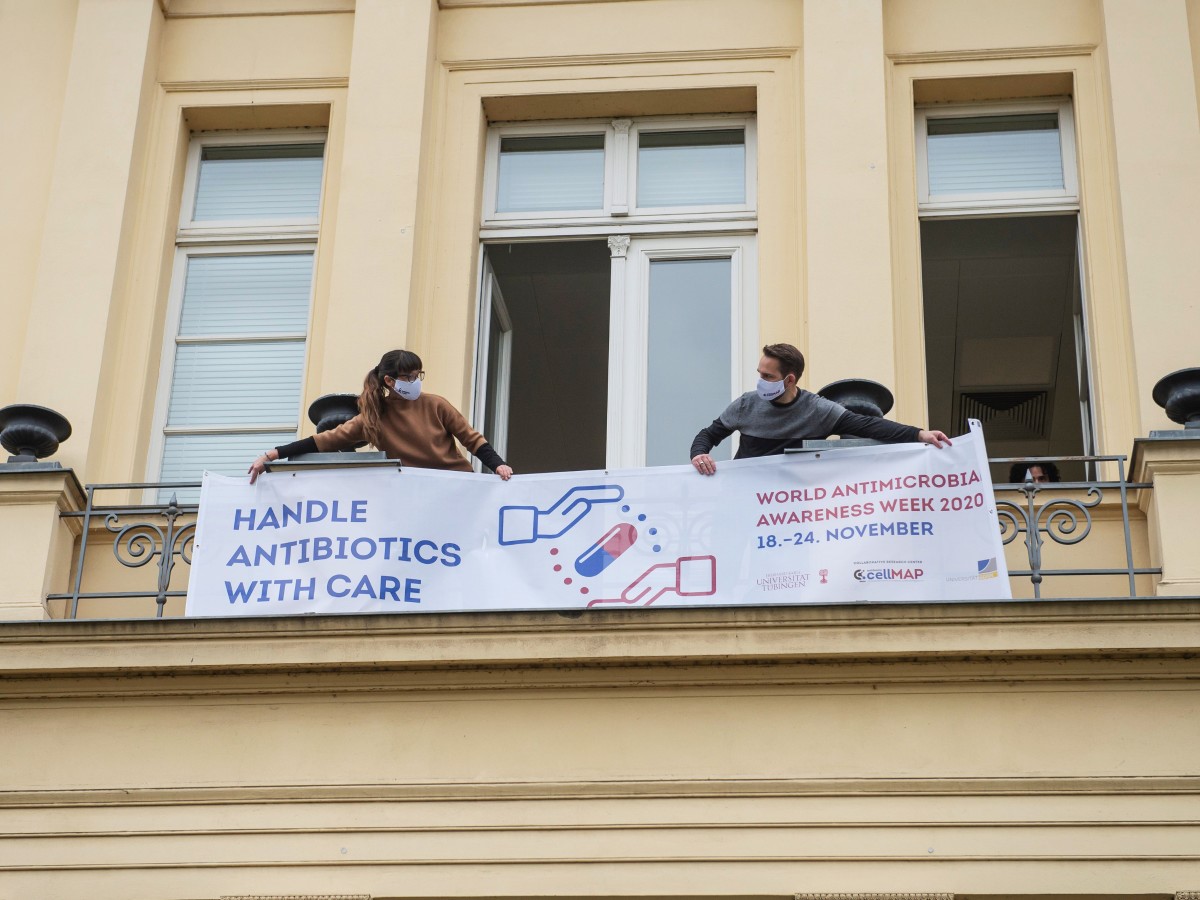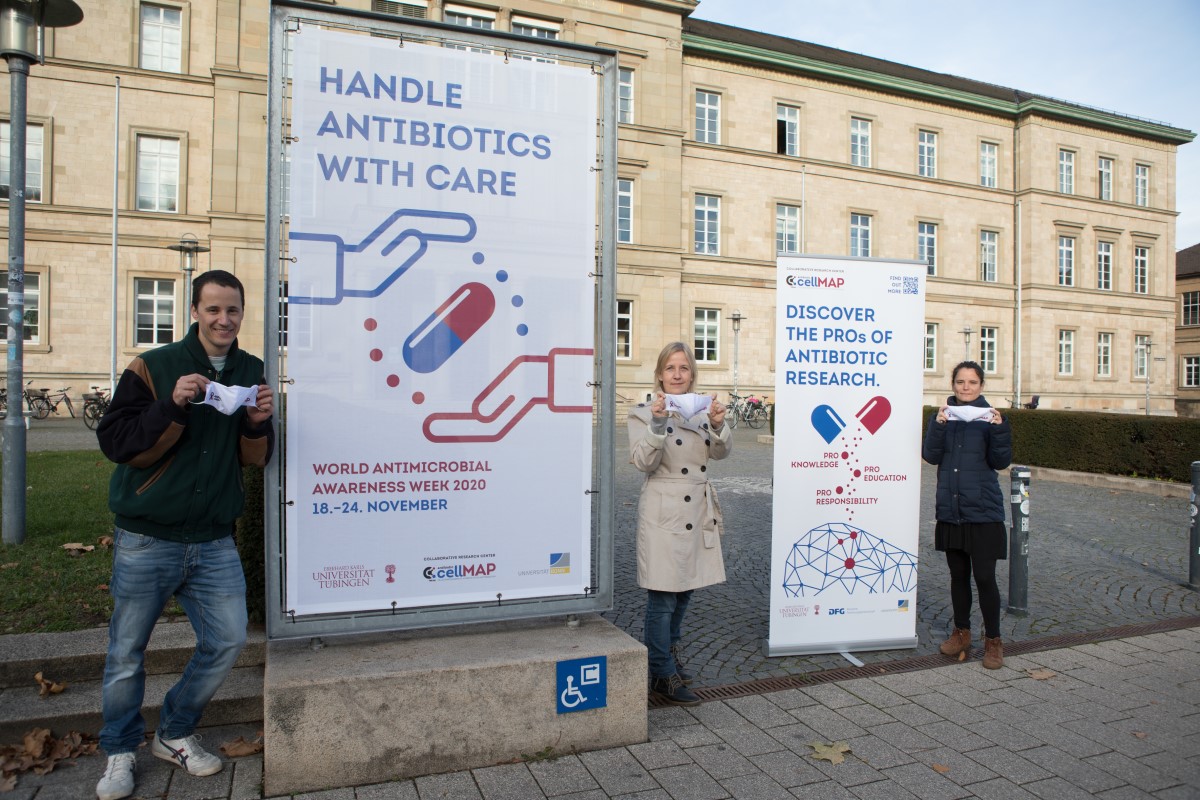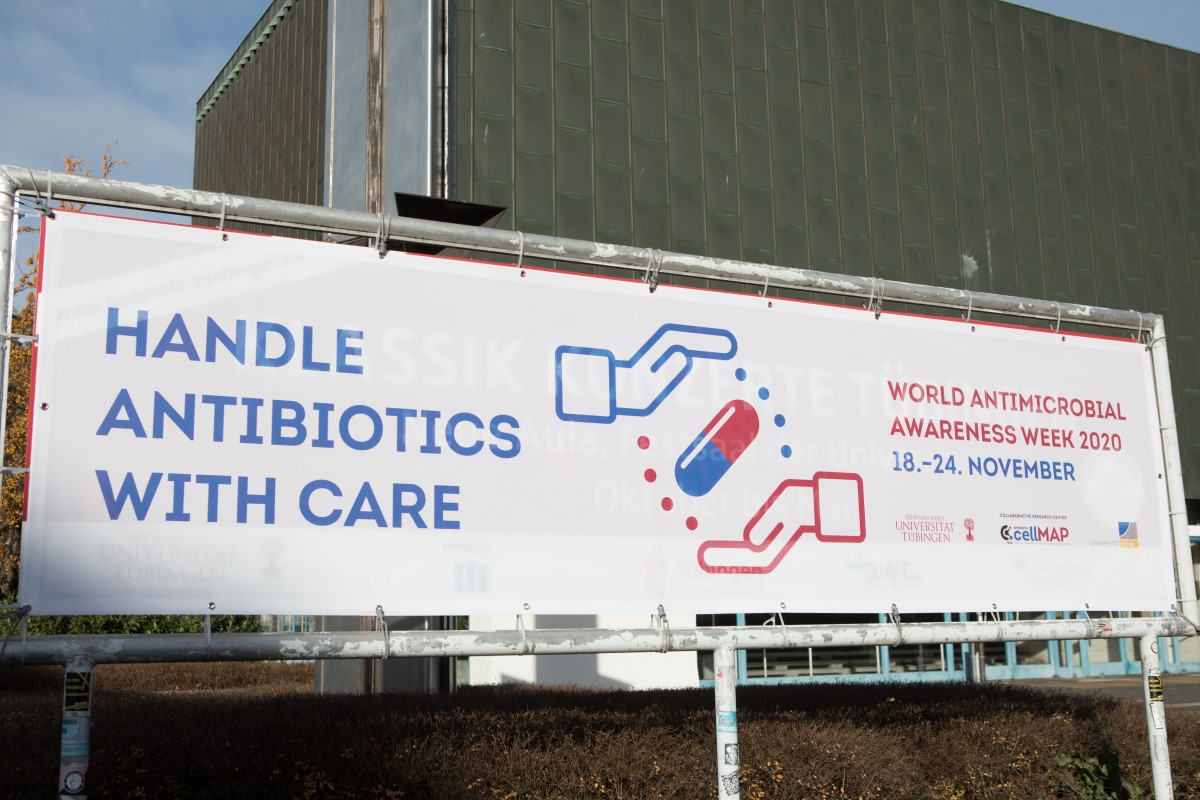Waving a flag for antibiotics - The Universities Bonn and Tübingen support World Antimicrobial Awareness Week 2020
Antibiotics are a not only crucial weapons in the fight against bacterial infections, but form central pillars for many advanced therapeutic interventions in modern medicine. However, these drugs are losing efficacy because of the rise of antibiotic resistance. World Antimicrobial Awareness Week aims to increase awareness of the growing problem of global antimicrobial resistance among the general public, health workers and policy makers. In a joint initiative, the universities Tübingen and Bonn support this important effort.
The speakers of the transregional collaborative research center (CRC) 261 “Antibiotic CellMAP” at the universities Bonn and Tübingen urge a more careful handling of these lifesaving medicines. Prof. Dr. Heike Brötz-Oesterhelt of the Institute of Microbiology and Infection Medicine at the University of Tübingen says: ”Antibiotics are a prerequisite for our treatment standards in most areas of modern medicine, including transplantations, cancer chemotherapy, and complex surgeries”. Prof. Dr. Tanja Schneider of the Institute for Pharmaceutical Microbiology at the University of Bonn emphazises: “Antibiotic resistance is one of the biggest health treats we face today. It is time act.” Initiated by the collaborative research center funded by the German Research Foundation, flags have been raised today in both university cities in support of World Antimicrobial Awareness Week.
The overuse and misuse of antibiotics is speeding up resistance development which has already reached alarming levels. Today, 700,000 people die each year of infections with antibiotic resistant bacteria, and it is estimated that, if the current trend continues, the global number of fatalities attributed to antibiotic resistance will increase dramatically. We are already in a situation where we face infections from some superbugs unarmed. This situation is further aggravated by a dwindling development pipeline of novel antibiotic drugs. Scientists are also concerned that the heavy use of antibiotics in COVID-19 patients, who often suffer from secondary bacterial infections, may fuel resistance development further.
In a joint effort with international institutions, the collaborative research center aims to improve the methods used to find novel antibiotic compounds and, in particular, to close current knowledge gaps in fundamental antibiotic research. Prof. Brötz-Oesterhelt highlights: “Even for long-established antibiotics, where immediate drug-target interactions have been thoroughly investigated in biochemical assays, we often do not understand the cellular consequences that follow target engagement. We need to increase our basic knowledge on theses mechanisms to support future antibiotic development.”
Within their joint collaborative research center, the antibiotic researchers at both universities study the fundamentals of the multifaceted activities of antibiotics. It is their vision to explore the cellular mechanisms of antibiotic action and production in time and space, to lay the foundation for more rational approaches in antibiotic drug discovery, and to allow the production of such antibacterial agents not accessible to us today.
Contact
Prof. Dr. Heike Brötz-Oesterhelt
Interfakultäres Institut für Mikrobiologie und Infektionsmedizin
Universität Tübingen
Tel.: 07071 29-74706
E-Mail: heike.broetz-oesterhelt@uni-tuebingen.de
Prof. Dr. Tanja Schneider
Institut für Pharmazeutische Mikrobiologie
Universität Bonn
Tel.: 0228/73-5688
E-Mail: tschneider@uni-bonn.de
Press release University of Bonn | DE
Press release University of Tuebingen




Pictures: Barbara Frommann/University of Bonn and Friedhelm Albrecht/ University of Tuebingen

